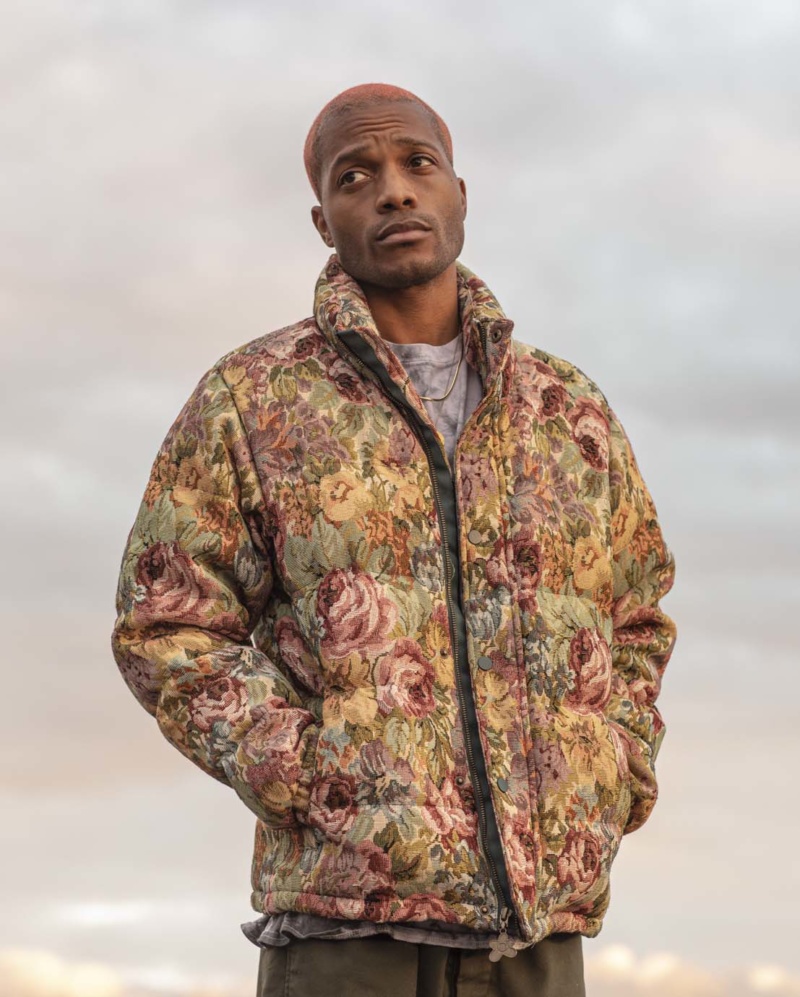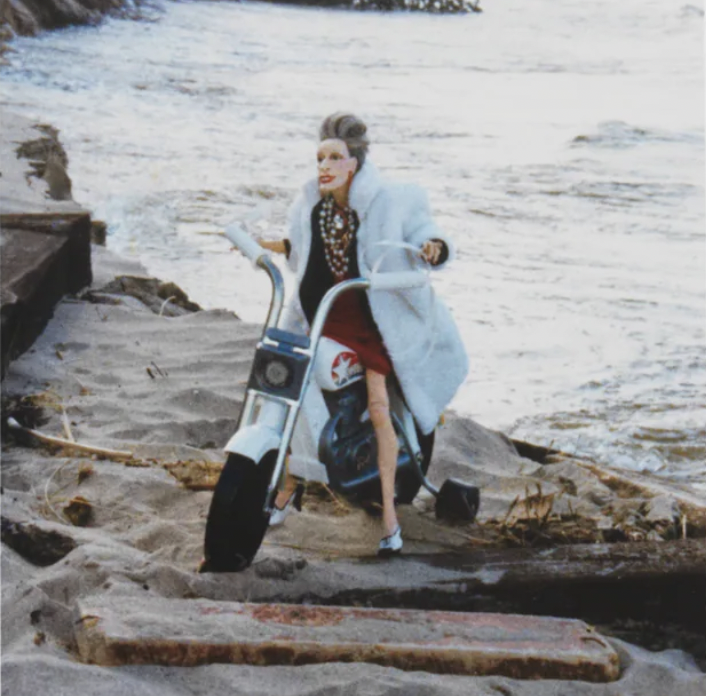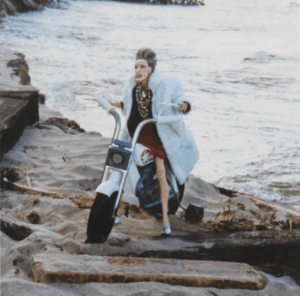
Last year, days after completing Coming 2 America, Jermaine Fowler was on a plane to Cleveland for a role in Judas and the Black Messiah. It was like hopping through a portal. In the former, an opulent comedy, he stars as the heir to an African dynasty. In the latter, he is Black Panther Mark Clark, witness to the short life and legacy of Fred Hampton. Like the transition in Kanye & Jay-Z’s “Murder to Excellence,” this dizzying shift from a violent present-past into a gilded future mirrors the ongoing contradictions of a reality where Black creatives and businesspeople are rising and profiting and yet Black people are still being policed and murdered and fighting for a modicum of dignity.
“It was night and day,” he says on a call via Zoom. “But you know what, that’s life.” It’s a Wednesday afternoon, a few hours after the inauguration, and Fowler is full of energy. “Walking through the world teaches you that there can be pain in beauty and beauty in pain. Coming 2 America was a fucking party. The energy was light. To be transported to Zumunda, where the world is your oyster, where dreams are real, was such a transition to Black Messiah. Knowing what the lives of the Black Panthers cost, what they endured… it wasn’t easy to get through, but I welcomed the challenge of both.”
The contrast, however, reflects the fact that Fowler—informed by the early flush of nineties Black cinema—has always hoped to shape a range of narratives. Whether in stand-up, executive producing or writing, he is drawn to the kinds of Black-centered stories that have become synonymous with global entertainment. “In my house, growing up, it was pretty fucking Black. Even the cartoons I grew up on, they were Black. Now there’s a drive to bring that back, and not just for the sake of it, but because the shit was good. You can still watch Martin and laugh. I can still watch Friday twice a month. I hate it when networks do the ‘Black voices’ section; it should just be a thing. We should just exist in the fabric of society and entertainment.”
It’s common knowledge that the system of Hollywood has long excluded the full scope of the human condition. Despite the bevy of increased representation, visuals of truth—undiluted and raw—are still hard to find. That’s one of the reasons he was drawn to the role of activist Mark Clark. “The way our history has been dictated is just different. It’s been revised. And the way it’s been portrayed is far from full. The history of the Black Panthers started by people wanting to protect their children. Something everyone can relate to. There’s a misconception to a lot of the shit we’re fighting for. A lot of people have been misinformed about who we are and what we’re fighting for.”
Curiosity informs much of Fowler’s work. Rather than lose himself inside the minds and emotions of the character and its role, he tries to maintain a kind of distance, a sort of focused balance. “I don’t wanna let a character take over me. You hear those stories about particular performers who dive too deep and they forget who they are,” he says, laughing. “That’s not necessary to me. It’s our job to portray that person, not to fold inside their world.”

He prefers to deliver “grounded, believable” performances, pulling from a wealth of personal experiences to execute scenes. Before starring in the CBS sitcom Superior Donuts, Fowler worked a variety of odd jobs. He describes his early journey as “lonely, full of heartbreak and failure.” Still, those moments were vital to his craft as an artist.
“I learned so much about processing my emotions, about working with them. The moments of doubt or uncertainty. Of being hungry. Of crying. You war with yourself, and shit feels unsteady. But it all comes down to drive. No matter what, there’s gonna be moments—no one hands you anything— and you’ve got to be strong enough to pick yourself back up. Artists can sometimes be our own worst critics but we also have to be our biggest fans. It’s okay to be complementary. It’s okay to champion yourself.”
Over quarantine the learning hasn’t stopped. Recently he found out he has a long-lost sister, a surprise that has only strengthened his gratitude. “We connected during a really stressful time, right when I was in the midst of facing and embracing a whole lot of shit I had to face. I still can’t put into words how thankful I am for her and the things she’s taught me in such a short time.”
But the best lesson learned during lockdown, and perhaps the wisest gift, has been the importance of remaining present. “It’s easy to sit down and worry about tomorrow. Worry about today! When I was 17 my biggest goal was to work with Eddie Murphy. He was my idol, and I took every day leading up to set [on Coming 2 America] for granted. That’s when I started to look at life clearly and finally say I’m proud of myself and started to chill out. It’s easy to be ungrateful. It’s stupid, because then you look around and realize it’s the small wins that matter most.”










 in your life?
in your life?

